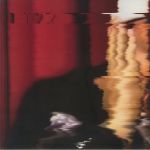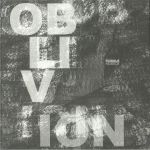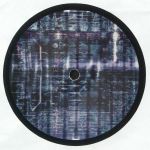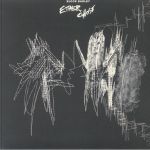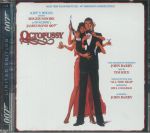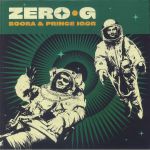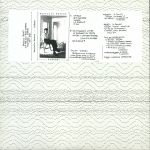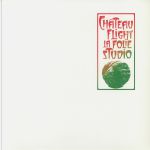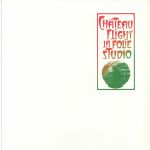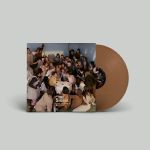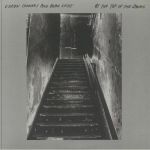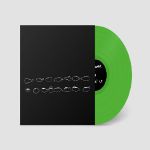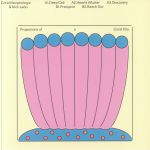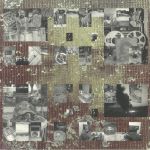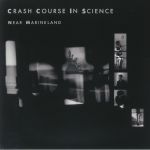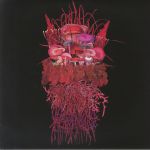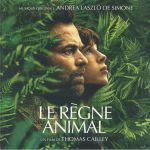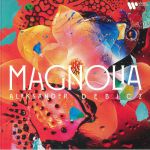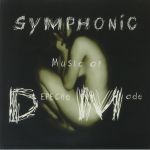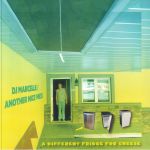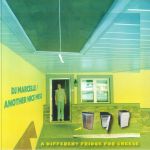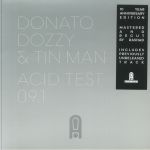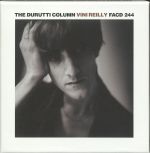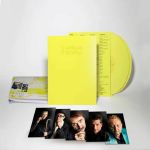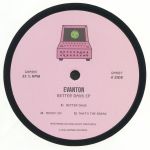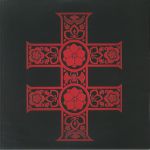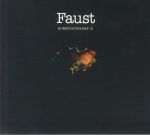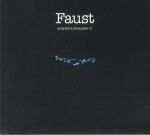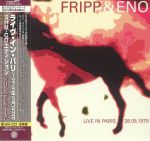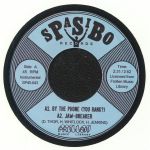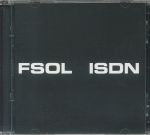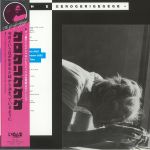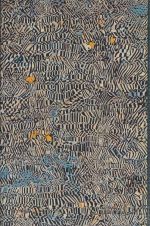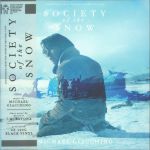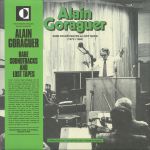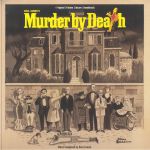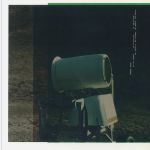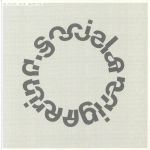100% Secure Shopping
Studio equipment
Our full range of studio equipment from all the leading equipment and software brands. Guaranteed fast delivery and low prices.
100% Secure Shopping
DJ equipment
Our full range of DJ equipment from all the leading equipment and software brands. Guaranteed fast delivery and low prices. Visit Juno DJ
Filter
Genre
Stock
Equipment
Artist
Label
Featured
Release Title
Price
Tags
New releases last two weeks: Leftfield
Leftfield vinyl released in the last two weeksTold My AI Female Companion That Im Enjoying This V Generous Selection Of Fancy Conveniences (feat Transient Pleasure & SiliconValidity.io)
in stock $29.58
in stock $15.04
Review: Three lovely, carefully terraformed dub tekno sketches from new co:clear recruit Eden Aurelius. Both in title and soundworld, these pieces strongly evoke slow-panning aerial shots of undulating terrain, gusts of wind through glistening skyscrapers and diffused sunlight through striated cloud. A stretch maybe - but a stretch informed by years of dub techno semiotics from precursors like Rod Modell and Pub, whose visually evocative sonic staging doubtless laid some of the groundwork for records like this. There's a formalism and orthodoxy to Aurelius' work, marking it apart from the glut of neu-ambient ASMR-scapes from labels such as INDEX and 3XL. Take the cathartic pulse of title track 'Plateau', for instance, which deftly weaves cavernous swathes of vocals and band-passed chord stabs into something that would sound equally at home on SUED or echospace. Real nice.
… Read morePlayed by: Thomas wood
in stock $14.52
in stock $8.29
in stock $23.86
Octopussy (40th Anniversary Expanded Edition) (limited 2xCD)
Cat: LLLCD 1637. Rel: 17 Apr 24
in stock $55.00
Bass Works: As I Venture Into (limited borwn vinyl LP)
Cat: KR 59. Rel: 11 Apr 24
in stock $21.27
in stock $20.50
Pieces (reissue) (limited LP + booklet in die-cut sleeve)
Cat: FTS 027. Rel: 09 Apr 24
Review: Danielle Boutet's Pieces is a mysterious artifact of Quebecois marginalia, self-released in 1985. Seeming to land squarely in the French no wave niche, yet nonetheless defying it through sinister inversions of the form, the reissued album comes as a reminder of Boutet's impressive command over atmosphere and narrative. Arabesque monologues in her native French soar over warblingly warm arpeggios, which sound ready-primed for traversals of Transylvania, while the more languid cuts make use of impressively synthetic emulations of what could otherwise sound like affectedly acoustic instruments, such as the "harmonica" on 'En attendant l'aube'. This is a welcome unearthing of an otherwise unconscious album, made in the space between REM sleep and authentic, out-of-the-limelight living.
… Read morePlayed by: Alexis Le-Tan
in stock $29.58
Review: On his return to China in 2019 after a period away, Brock van Wey noticed a "strange, sound emitting item" on the table. It was a handmade 'steel tongue drum', a unique percussion instrument associated with spirituality and meditation in Asian culture. A few days later, van Wey recorded an extended jam of himself playing it, and later overdubbed electronic sounds, melodies, chords and textures. The result is The Depth of Rain, the long-serving ambient and drone artist's second Bvdub album of 2024. Where some of van Wey's ambient sets can tend towards the intense and claustrophobic, The Depth of Rain is a genuinely melodious, evocative and spring-like affair that ebbs and flows wonderfully throughout, providing entertainment and sonic bliss in equal measure.
… Read more in stock $17.39
Review: French outfit Chateau Flight have spent two years in the studio making music, playing around and experimenting and now the fruits of that work are presented on this new album La Folie Studio. It is full of the sound of analogue machines conversing and the artists themselves speaking through their darkened basslines or eerie pads. Occult worlds are crafted, ambient soundscapes are cooked up and leftfield cosmic explorations occur throughout a journeying album full of a wide range of emotions. This lovely record features guests on the odd track such as Johnny Nash on guitar, Cosmic Neman mumbling on 'Mange', John Cravache playing 'his special organ" and Bony Bikaye singing on 'Esika Molimo Ezali'. It's an occult world of left of centre sound that will keep you coming back for more.
… Read morePlayed by: DJ ROCCA
in stock $35.28
in stock $46.96
in stock $14.01
in stock $28.81
Cat: FV 114LP. Rel: 11 Apr 24
Review: Loren Connors and Alan Licht's collaborative journey spanning 30 years culminates in their eighth album, At The Top Of The Stairs, is a great example to their enduring partnership and musical evolution. Recorded live in 2018, the album features two side-long pieces that showcase the duo's ability to create ethereal, abstract soundscapes with intricate arrangements. Throughout their collaboration, Connors' ghostly blue tones and Licht's meticulously crafted feedback and harmonic patterns have formed the core of their unique sound. At The Top Of The Stairs captures the duo's ascent through layers of atmospheric tension, punctuated by Connors' thunderous waves of effects. Connors and Licht have left an indelible mark on the experimental music landscape.
… Read more in stock $22.58
Review: Container is a long-running project from Ren Schofield but he has hasn't released anything since back in 2021 when he delighted techno heads with his Creamer EP. His manic sound has recently taken him to some sold out shows around the world and now comes Tacker, a new album that fuses rock with electronic stylings on Alter. Nirvana's 'Oh, The Guilt', Mindflayer's album 'It's Always 1999', and the Rah Bras song 'Sooop Toe Pump Girls' have all been given as points of inspiration for this most brain-fizzing, hardcore collision of worlds.
… Read more in stock $20.24
Review: Miami duo Coral Morphologic has linked up with Nick Leon for a debut collaboration here, Projections of a Coral City, which lands on the cultured Barcelona-based label Balmat. It's a lush listen that very much soothes mind, body and soul with its widescreen ambient synth scopes, suspensory pads and painterly strikes of sound. The mood is carefree and dreamy, occasionally rueful and introspective and always realised in a beautiful fashion. Here's hoping this might be the first of many collabs if this is the sort of work these artists can cook up together.
… Read more in stock $21.78
Espontaneamente Se Tenta: Aventuras Sonoras De Djalma Correa (gatefold 2xLP)
Cat: LA 007. Rel: 19 Apr 24
in stock $32.69
Review: The cult favourite Dark Entries hits 15 in style here and celebrates in the only way it knows how - with more great music. This time it is the legendary synth-punk yahoos Crash Course in Science aka Dale Feliciello, Mallory Yago, and Michael Zodorozny who are in the spotlight. The group formed back in 1979 and set out to make music using toy instruments and kitchen appliances. Their punk-y, aggressive, angular sound soon found a hardcore fan base and gave rise to big tunes like 'Cardboard Lamb' and 'Flying Turns.' In 1981 they recorded Near Marineland, a full-length that never actually saw the light of day but does now and shows the band moving into more diverse and polished territory.
… Read morePlayed by: Wes Baggaley
in stock $22.06
Mycorrhizal Fungi (red vinyl 12" in spot-varnished sleeve)
Cat: ASOF 002. Rel: 19 Apr 24
in stock $29.06
in stock $17.63
La Regne Animal (Soundtrack) (clear vinyl LP)
Cat: 801262 2934498. Rel: 10 Apr 24
in stock $36.84
in stock $31.12
DEPECHE MODE / VARIOUS
Symphonic Music Of Depeche Mode (clear vinyl LP limited to 300 copies)
Cat: CLOLP 3235. Rel: 18 Apr 24
in stock $29.06
in stock $28.01
Cat: LP 6423824. Rel: 22 Apr 24
in stock $37.89
Cat: PLLO 162.1. Rel: 09 Apr 24
in stock $34.24
Cat: ACIDTEST 091. Rel: 16 Apr 24
Review: The now ten year old 'Acid Test 09' sees a special tenth Anniversary Edition repress with a new vocal mix of the track 'Test 3'. The original EP, released in 2014, saw acid nomad Tin Man team up with techno dreamweaver Donato Dozzy for three slices of deep acid and dubby, bleepy ambient; this special anniversary version adds a surprise new vocal mix on the A2, with either Dozzy or Tin Man himself gracing the beats with a set of carefree, moony phonic impressions, lyrically concerning the object of his affections looking oh so good on the dancefloor. We already know and love the rest; it's up to you to put the new addition to the test.
… Read more in stock $13.49
Vini Reilly (35th Anniversary Edition) (3xCD + mini CD + DVD)
Cat: FACD 244. Rel: 18 Apr 24
Vincent Gerard & Steven Patrick - "I Know Very Well How I Got My Note Wrong" (bonus track - 3" Mini Cd)
Live In Porto 30/04/1988 (DVD Region 0)
Review: Formed in the post-punk era of Manchester in 1978, The Durutti Column, led by guitarist Vini Reilly, has remained an enigmatic and influential force in the history of post-punk. Their 1989 release, aptly titled Vini Reilly, is a testament to Reilly's eclecticism and sonic experimentation. The album spans a vast musical landscape, encompassing elements of post-punk, rock, acoustic, avant-garde, jazz, classical, folk, pop, and electronica.The album's 35th anniversary reissue box set includes many great additions that allows listeners to appreciate the enduring impact of his artistry, as he continues to inspire and challenge music enthusiasts worldwide. Includes new essay by Durutti Column/Factory Records expert James Nice, liner notes by band member Bruce Mitchell, liner notes from Anthony Wilson, interview extracts with Vini Reilly and restored images and outtake images.
… Read more in stock $30.87
Rampen (APM: Alien Pop Music) (limited numbered yellow vinyl 2xLP + fold-out poster + postcards in embosed sleeve)
Cat: 525609 1. Rel: 08 Apr 24
Review: The legendary experimental German band Einsturzende Neubauten is back with their first album since 2020, Rampen (apm: alien pop music). Since their formation in 1980, the band his sought out to blaze their own trail in making what others would assume is noise into their own brand music. Their own music language was created and brought with them legions of followers that have added a bit of Einsturzende Neubauten's influence to their own sounds. The band has once again pushed their sound even further - alien pop music. This edition comes on yellow vinyl.
… Read more in stock $58.89
Signal (LP limited to 300 copies)
Cat: IRRLICHT 022. Rel: 12 Apr 24
in stock $22.58
in stock $14.27
Ankoku Butoh (remastered) (180 gram red & black splattered vinyl 2xLP)
Cat: TCMLPRB 32. Rel: 12 Apr 24
The Red Crown
Kodama
She Waits By The Well
Sovereign
To Be Continued
in stock $46.44
in stock $16.09
Can't Fly Away
25 Yellow Doors
Lieber Herr Deustchland
Schwindebek III
Children's Toy Etude
Begluckte Schlagbohrmaschine
Stay Or Leave
Das Meer
So Far (alternative version)
Transformationrolle
Woke Up Outside The Dust Bin
We Are The Hollow Men
in stock $16.09
Firnis Der Civilisation (LP + booklet limited to 300 copies)
Cat: FELT 007. Rel: 23 Apr 24
in stock $19.20
Live In Paris 28/05/1975 (3xSHM-CD with obi-strip)
Cat: POCS 1977. Rel: 12 Apr 24
in stock $43.85
Review: Darvid Thor, Henry Jenkins and Hudson Whitlock (of the bands Karate Boogaloo and Surprise Chef) founded the low-key Frollen Music Library in 2021. Now aided in kind with a public release of their works by Spasibo Records, a heartwarming dialogue is facilitated between two isntitutions by way of a new four-track EP. Hand-picking four sweet treats from two earlier releases put out between 2021 and 2022 respectively - 'By The Phone (You Rang?)', 'Jaw Breaker' and 'Sei Cardigani Di Ball' all hailing from the former's Sweet Treats Vol. 1 compilation and the final track '1/4 Cup Of Sunflower Oil' from the following year's The Fretted Neck' album - these tracks are laid-back, nonchalant refractions of talent, across which the aforementioned cycle through said covers of Ennio Morricone, Pierro Piccioni and Piero Umilliani's standout score cuts with ease.
… Read more in stock $16.35
State Of Mind (reissue) (limited pink vinyl LP)
Cat: CLOLP 5410. Rel: 18 Apr 24
in stock $28.54
Cat: 587335 7. Rel: 19 Apr 24
Review: Something of ground-breaking album on its initial release in December 1994, ISDN is one of Future Sound of London's most name-checked sets. It's effectively a re-edited and rearranged collection of live recordings - jammed out tracks that were initially broadcast to the world via ISDN links to clubs and radio stations, which FSOL brilliantly moulded into a mind-mangling journey through IDM, trip-hop, proto-big beat, dub, ambient, found sounds, field recordings and wayward electronica. To celebrate the album's 30th birthday, it returns as a two-disc set, freshly 'amalgamated and re-sequenced' by FSOL to include material from both previous editions of the album. It is, then, a kind of 'definitive version' of the LP, and one that still sounds as joyously weird, trippy and psychedelic as it did first time around.
… Read more in stock $25.43
As If It Had Always Been Determined Since This Day Was Born (LP + insert with obi-strip)
Cat: WC 104. Rel: 11 Apr 24
Review: Japanese industrial noise duo The Grogerigegege are something of an urban legend within the underground music scene. Apparently meeting at a sex club where a shared appreciation for envelope pushing sex acts, punishing aural sonics and a bizarre avant-garde perspective on art would lock them together for ensuing decades of musical mayhem. Known for incorporating nudity, violence, broken glass and hoovers into their live set, the pair would even take a lengthy respite while one of the members simply disappeared for years on end before reconnecting with his counterpart. As If It Had Always Been Determined Since This Day Was Born transports listeners back to the pair's earliest forays into calculated extremity with blown out, overdriven remixes taken directly from the master tapes of their first 7" single released back in 1988. This includes the long sought after remaster of 'Mistress' originally used in the legendary Enoshima Beach Flexi Burning Live (which the pair opted to burn all original pressings of rather than make readily available). You do have to remember these are the same lads who sold dried out octopus tentacles in cassette cases during one tour as a limited release, and smashed up the master recording of another work and put the broken pieces in a metallic box that the listener shook to hear the album, hence the title You Are The Music Maker. If the utter lunacy of The Grogerigegege isn't detailed enough here, well this pressing comes complete with 5500 word essay-style liner notes penned by 55 year old Gero himself (Juntaro Yamanouchi).
… Read more in stock $31.92
Live At Worm Turns (limited cassette + MP3 download code)
Cat: BTB 005. Rel: 11 Apr 24
in stock $10.13
Society Of The Snow (Soundtrack) (2xLP + booklet with obi-strip)
Cat: MBMLP 1. Rel: 11 Apr 24
Review: Michael Giacchino, a decorated Academy Award-r winning composer, delivers a commanding yet tender score for J.A. Bayona's moving film The Society of the Snow. It recounts the harrowing true tale of the 1972 Uruguayan flight that crashed in the remote Andes, and the ensuing battle for survival. Amid despair, the film champions hope which is a sentiment echoed in Giacchino's emotionally charged score. Balancing poignancy with optimism, the music navigates a delicate path that amplifies the film's power. Bayona and Giacchino's collaboration yields a cinematic masterpiece that will surely resonate as one of the year's most compelling narratives.
… Read more in stock $36.32
Rare Soundtracks & Lost Tapes (remastered) (limited LP with obi strip)
Cat: TRS 30. Rel: 08 Apr 24
Review: Earnest, atmospheric, romantic-gothic guitar pieces from Alain Goraguer, whose Rare Soundtracks & Lost Tapes hears a collection never heard before on vinyl. Goraguer is best known as a collaborator and ghostwriter of Serge Gainsbourg, as well as the scoring composer for the surrealist sci-fi animation film Fantastic Planet. At around the same time of the making of these two indelible compositions, Goraguer also wrote two similar, but less publicly-oriented scores, both of which appear on this record in a back-to-back fashion. An array of breathy flutes, eerie backing synth counterpoints, and shaky percussions all combine to cloud the glasses on this beautifully bittersweet album-length hypnosis.
… Read morePlayed by: Charles Maurice
in stock $26.98
Murder By Death (Soundtrack) (clear vinyl LP)
Cat: 725324 1. Rel: 08 Apr 24
Review: Dave Grusin's score for the whodunit comedy Murder by Death masterfully blends traditional and modern elements. Grusin's intent to approach the comedic affair seriously resulted in a thematic and delightful score that captures the film's eclectic nature. Paying homage to British murder-mystery roots while pushing boundaries, Grusin created a unique and charming musical landscape. The score's first-ever vinyl release allows audiences to fully appreciate Grusin's artistry, highlighting the perfect balance between tradition and innovation that characterizes his work.
… Read more in stock $29.32
Cat: PMRCD 22001. Rel: 11 Apr 24
in stock $15.31
Encyclopedia Sonica Vol 1 (LP + insert)
Cat: LOS 002. Rel: 09 Apr 24
in stock $21.27
in stock $39.43
in stock $28.28
Social Engineering (LP + MP3 download code)
Cat: FAIT 36LP. Rel: 23 Apr 24
Review: A fresh and exciting new concept record from ambient master Jan Jelinek; the new LP Social Engineering is made of nothing more than the text-to-speech renderings of the content of phishing emails received in the musician's inbox over an undisclosed period. Over the course of 13 tracks, Jelinek reworks, timestretches, juggles and expands these robotic narrations into speech-synthetic soundscapes, making for a weird and well-paced foray into a certain greyscale sonic unheimlich. Beginning with a Microsoft impersonator and ending on a 'polite threat', Jelinek's latest record presents an ironic conundrum; indeed, Social Engineering presents the only kind of decision under pressure - whether or not to buy ingenious new experimental ambient music - that we can't refuse.
… Read more in stock $26.73



